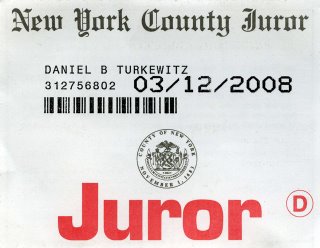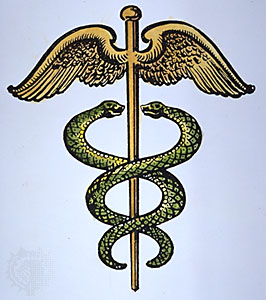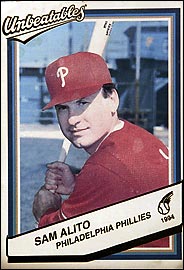 My brother Dan, a screenwriter, sat jury duty this week in New York. He live-blogged the experience, for publication when it was over:
My brother Dan, a screenwriter, sat jury duty this week in New York. He live-blogged the experience, for publication when it was over:
—————————————————–
Tales From The Juror
Thoughts, observations, and ramblings, from the jury room at 111 Centre Street.
8 AM
In an effort to make sure I’m there on time, I get there before the building is even open. Big mistake. Have to wait out on the sidewalk. The day is not off to a good start.
9 AM
In my seat in the holding pen, verify that there is indeed free wifi access. The day gets slightly better.
9:30 AM
The woman running the show, giving instructions:
“You’ll notice, on my right, are vending machines, where you can buy snacks. We do not own these vending machines, so if you put your money in, and your snack does not come out, we are not responsible. And there is no number on the machine for you to call. But if it happens, we do allow you to shake the machines a little.”
9:45 AM
Ed Bradley (who died 16 months ago), and Diane Sawyer narrate the introduction film, which is supposed to make us feel better about being here. But it’s March 12, and half the people here are sniffling, wheezing and coughing. It’ll be a miracle if I get out of here alive. I think it was jury duty that did in Bradley.
10:00 AM
There is a severe lack of hot-looking women in this room. All those years of watching courtroom based TV shows, I was lied to! How could TV let me down so badly? There will be no amusing stories to tell my children years from now about how I met their mother while we sent some guy to the chair. (Do we still use Old Sparky in this state?)
If I get picked on a criminal case, and the A.D.A. isn’t smokin’ hot, I’m going to kick Dick Wolf’s ass.
(For those, like my brother, who probably don’t know who he is, Dick Wolf is the creator of “Law & Order,” a show which usually features an actress playing an A.D.A who looks like she was cast from a Victoria’s Secret catalog.)
10:05 AM
My brother e-mails me the following note:
“DO NOT TELL ME ANYTHING ABOUT DETAILS OF THE CASE IF YOU ARE PICKED UNTIL IT IS DONE!”
Apparently my brother thinks I’m an idiot. I’d find him guilty so fast.
10:16 AM
First call for criminal jury selection.
10:18 AM
I didn’t get called. Bastards.
10:23 AM
A cell phone goes off in the room. We were told to turn them off. The offender doesn’t get yelled at. Damn. I thought it might be the first chance at some drama here.
10:28 AM
Civil selection call.
10:33 AM
Not called
10:35 AM
Next call. This group is going to another building. 60 Centre Street.
10:39 AM
Not called. Good. Don’t feel like moving. If I’m going to be asked to hand out justice, let me do it without having to put my coat on.
10:40 AM
The guy behind me is loudly crunching through a bag of potato chips. He’s driving me nuts!
10:41 AM
Civil panel being called.
10:45 AM
Not called again.
God help me if I every have to rely on some of these folks to decide my fate.
10:53 AM
My bit to help the system run smoothly includes instant messaging with my 18 year-old niece on spring break in Florida. How did people ever stand jury duty without computers?
11:17 AM
Working on my latest screenplay. The guy behind me is starting to read over my shoulder. He thinks I don’t notice, but I do. Time to cause a scene? Humm…how bored am I?
11:21 AM
Taking a break from writing to do what jury duty is truly useful for: preparing for my upcoming rotisserie baseball draft!
11:29 AM
Another criminal panel call.
11:31 AM
I’m picked!!!
1:53 PM
Back from lunch. It’s amazing how easy it is to get out of serving. The judge asks “is there anyone here who can’t be impartial?” and 1/4 of the people raise their hands. All they have to do is say their name and declare “I can’t be impartial,” and they’re gone. Wow. Of course most of them are full of it. You end up hoping those people get arrested for something and have to rely on a jury some day.
There is one prosecutor, and he is not hot. Dick Wolf, watch your ass.
11:00 PM
Home.
So I was sitting there in the voir dire, one of 16 in the box, and we find out what the case is. It’s a drug case. Two Hispanic males from Harlem are caught in an apartment with 20 kilos of cocaine. That’s a lot of coke. There’s also an unloaded gun and a minor in the apartment, both of which add to the charges. Some jurors have already been chosen, they’re looking for more.
All the lawyers seem determined to remind us this isn’t CSI or Law & Order, it’s real life. I’m not sure if they’re being prudent or treating us all like idiots.
When the two defense attorneys started to question us, I was toast. One was hung up on the concept of using “entrapment” as a defense. Do we think it’s a legit defense? My response was, it’s meaningless as long as the cops followed all the rules they’re supposed to follow, and didn’t break any laws. At the end of the day, each person, no matter what situation they find themselves in, gets to decide if they’re going to be honest and law abiding, or dishonest and crooked. I pretty much knew that would get me tossed. Not that it was my goal to get tossed, I just didn’t like this guys’ angle, and felt like speaking my mind. The other defense lawyer was pushing the line that the cops went in without a warrant, how did we feel about that. Of course it was mentioned that this was an issue for the judge to decide, that if he says the cops didn’t need a warrant, then it was OK. But he got some people to say they felt funny about it.
Midway through the questioning, one of the court officers, an older gentleman, dozes off, with his hand on his gun. It did not inspire confidence. A few of us joked about it at lunch break, while waiting to go back in.
In the end, of the 16 of us questioned first, two were selected. I was not among them. So it’s back to the holding pen tomorrow.
The good news is, we don’t have to show up till 10 AM. Hot damn!
Day 2
9:50 AM
The holding pen is packed, but I find a seat in the front row. Time to sit and wait. Finally finish off the Sunday Times Magazine.
10:22 AM
They take attendance.
10:26 AM
Attendance over. They didn’t call me, and a bunch of others who were in my voir dire yesterday. The woman says they’ll try and track down our juror ballots. You do that.
10:45 AM
The missing juror ballots are found. I am now officially here. Oh boy.
10:54 AM
Casting my first jury duty vote: Snickers or M&M’s?
10:56 AM
Rotoworld.com says Orioles pitcher Adam Loewen was scratched from his scheduled start Friday because of a sore shoulder. The team president says it’s a normal result of his having undergone elbow surgery 9 months ago. I don’t care, I’m still not going to buy him at the draft.
Such is the excitement of jury duty.
11:01 AM
It’s amazing how quiet a room with well over 100 people can get. Reminds me of taking tests back in college.
The first day of jury duty, you actually look forward to getting selected. (at least I did) A little bit of excitement. A chance to do your civic duty. A chance to throw a bad guy in the slammer, or decide who really cheated who in some business deal gone bad.
The second day, all that crap goes out the window. Please, oh please don’t call my name. Just let the clock run out and let me go home.
11:36 AM
First panel called. 19 people. Not me. Good.
2:25 PM
Back from lunch. The immediate area definitely needs a better selection of eateries.
Only a couple of hours to go, and my time as a good citizen is over. Which is great, as the guy behind me in the packed jury holding pen is snoring something fierce.
4:00 PM
It’s over! With only one panel called all day, they’ve decided to cut us all loose. The guy setting us free decides to work on his standup routine.
“Some of you will be sad to be going home. (big laughs) Some of you will be glad. Just remember this: the last two days you had two-hour lunches. Tomorrow, it’s back to grabbing a sandwich at your desk. Today, you strolled in at 10. Tomorrow, it”s back to getting up at 7 AM.”
So there it is. My two-day odyssey through our judicial system has come to a close. I didn’t get to send any bad guys to the old gray-bar hotel, like I hoped. Nor did I set free any wrongly accused innocents, as my brother reminded me was also a possibility. No courthouse romances, no shootouts, nobody in handcuffs, no weeping family members, no mobs of reporters looking for courthouse steps sound bites. No courthouse steps, for that matter, at 111 Centre Street. All in all a thoroughly boring two days, interrupted briefly by a quick story about 20 kilos of coke.
And to think; sometime soon, some lucky jurors will get to sit in the box and hear about the ex-governor’s whoring around. I bet that won’t be a boring jury duty experience. Why couldn’t I get called then?
 There are several different reasons that patients (or next of kin) call lawyers regarding potential medical malpractice. Understanding the motivation for the call is important in evaluating the merits of a case during the vetting process.
There are several different reasons that patients (or next of kin) call lawyers regarding potential medical malpractice. Understanding the motivation for the call is important in evaluating the merits of a case during the vetting process.


